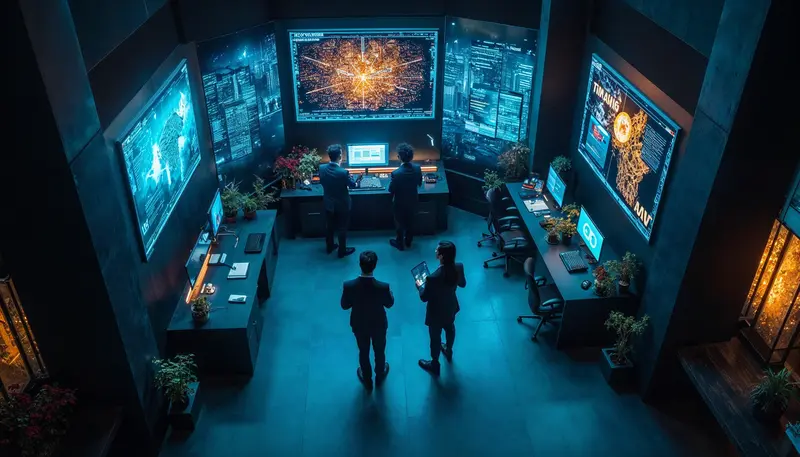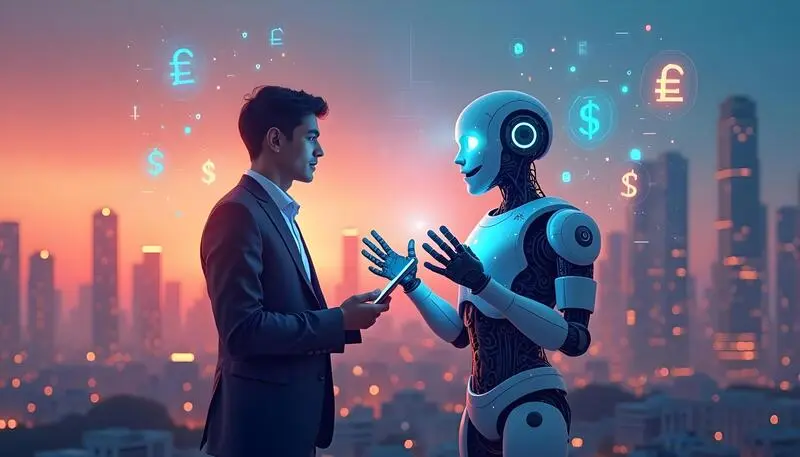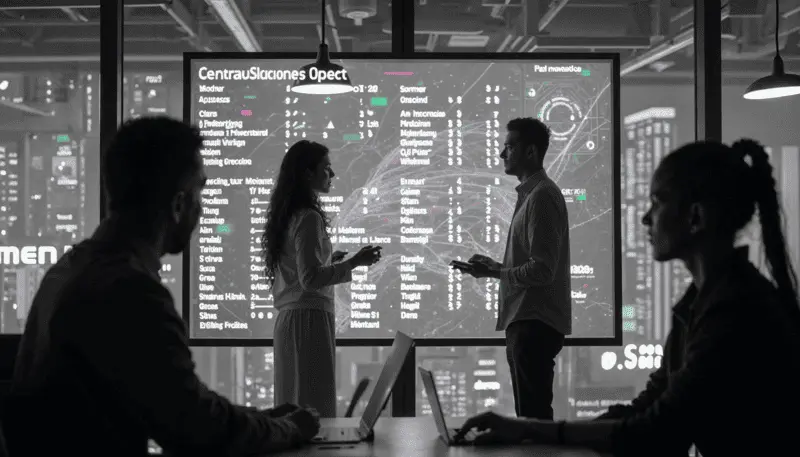As the world of cryptocurrency continues to evolve, one of the most exciting developments is the rise of AI crypto tokens. These tokens combine the power of Artificial Intelligence (AI) with blockchain technology, creating new ways to enhance data processing, decentralized decision-making, and automation. AI crypto tokens are designed to support AI-powered platforms and applications within the blockchain ecosystem, opening up a world of possibilities for investors, developers, and tech enthusiasts.
In this blog, we’ll break down what AI crypto tokens are, how they work, and why they’re becoming an increasingly important part of the crypto space.
1. What Are AI Crypto Tokens?
AI crypto tokens are digital assets that represent value and functionality within AI-powered blockchain platforms or decentralized applications (dApps). These tokens are often used to:
- Access AI-driven services such as data analysis, machine learning models, or automated decision-making.
- Incentivize contributions from users, developers, and AI data providers within decentralized networks.
- Power AI governance by allowing token holders to vote on platform upgrades or changes to AI algorithms.
Essentially, AI crypto tokens are the bridge between artificial intelligence and blockchain, enabling decentralized AI solutions to function effectively.
2. How Do AI Crypto Tokens Work?
AI crypto tokens are typically issued by projects that combine AI technologies—such as machine learning, natural language processing, and predictive analytics—with blockchain’s decentralized nature. These tokens allow users to interact with the platform’s AI services, create decentralized AI models, or even fund research and development.
Key Features of AI Crypto Tokens:
- Access to AI Services: Holders of AI tokens can use them to access AI-driven products and services. For instance, they can pay for AI-based predictions, data analytics, or machine learning models.
- Decentralized Governance: Some AI token platforms allow token holders to vote on decisions related to the platform’s development or the improvement of its AI algorithms. This creates a community-driven approach to AI development.
- Earning Rewards: In decentralized AI networks, users can earn tokens by contributing data, helping to train AI models, or offering computing power to the platform.
3. Examples of Popular AI Crypto Tokens
Several AI crypto tokens have gained attention in the blockchain and AI communities for their innovative use cases. Here are a few notable examples:
1. SingularityNET (AGIX)
SingularityNET is a decentralized AI marketplace that allows users to create, share, and monetize AI services at scale. Its native token, AGIX, is used to access AI services on the platform and compensate developers who create new AI algorithms. The platform aims to democratize AI development, allowing anyone to build and deploy AI solutions.
2. Fetch.ai (FET)
Fetch.ai is a decentralized platform that uses AI and machine learning to create autonomous “agents” that can perform tasks such as optimizing energy grids, managing supply chains, or automating financial services. The FET token powers the platform and is used to pay for services, incentivize participants, and facilitate agent-to-agent transactions.
3. Ocean Protocol (OCEAN)
Ocean Protocol focuses on data sharing and AI model training. The OCEAN token allows users to buy and sell data on a decentralized marketplace, giving AI developers access to datasets for training machine learning models. Ocean Protocol enables the exchange of data while maintaining privacy and control over the shared information.
4. Numerai (NMR)
Numerai is an AI-powered hedge fund that crowdsources machine learning models from data scientists worldwide to predict stock market movements. The NMR token is used as a staking mechanism, allowing participants to stake tokens on their predictions. Successful models are rewarded with more tokens, creating a competitive ecosystem for data-driven predictions.
4. Why Are AI Crypto Tokens Important?
AI crypto tokens represent the convergence of two transformative technologies: Artificial Intelligence and blockchain. By bringing AI into decentralized ecosystems, these tokens enable new ways to create and use AI services that are more transparent, secure, and collaborative.
Key Benefits of AI Crypto Tokens:
- Decentralized AI Development: Traditional AI development is often controlled by large tech companies. AI crypto tokens allow for a more open and decentralized approach, where developers and users can contribute and benefit from AI innovations.
- Data Sharing and Privacy: Many AI applications require large amounts of data to function effectively. AI crypto tokens facilitate secure data sharing while maintaining user privacy, ensuring that sensitive information isn’t misused.
- Incentivizing Collaboration: AI crypto tokens can incentivize collaboration between developers, data providers, and users, fostering a community-driven approach to AI research and development.
- Automation and Efficiency: By combining AI’s predictive power with blockchain’s decentralized infrastructure, AI crypto tokens enable faster, more efficient transactions, decision-making, and automated processes.
5. Challenges and Risks of AI Crypto Tokens
While AI crypto tokens offer exciting possibilities, there are also challenges and risks to be aware of:
1. Complexity of Technology
The integration of AI and blockchain is still in its early stages, and the technology can be complex. The learning curve for developers and users is steep, which may limit widespread adoption.
2. Regulatory Uncertainty
Cryptocurrency regulation varies by country, and AI tokens may face scrutiny due to their combination of finance and data management. The legal status of AI tokens is still evolving, which could create uncertainty for investors and developers.
3. Scalability Issues
AI applications require substantial computing power and data processing capabilities. While blockchain provides decentralization, it may struggle with scalability when it comes to handling large-scale AI tasks in real-time.
4. Market Volatility
As with most cryptocurrencies, AI crypto tokens are subject to market volatility. Their value can fluctuate dramatically, making them risky investments for those not familiar with the space.
6. The Future of AI Crypto Tokens
As AI technology and blockchain infrastructure continue to evolve, AI crypto tokens have the potential to play a key role in shaping the future of decentralized applications and AI development. Here’s what we can expect:
- More Advanced AI Models: As AI becomes more integrated with blockchain, we’ll see more sophisticated machine learning models and AI-driven applications built on decentralized platforms.
- Increased Collaboration: AI crypto tokens will enable greater collaboration between AI researchers, developers, and users, leading to more innovation in fields like healthcare, finance, and logistics.
- Data Monetization: The rise of AI tokens could create new ways for individuals to monetize their data while maintaining privacy, enabling more people to benefit from the AI economy.
Final Thoughts: AI Crypto Tokens—A New Era of Decentralized AI
AI crypto tokens are at the intersection of two groundbreaking technologies: Artificial Intelligence and blockchain. By offering decentralized access to AI services, facilitating secure data sharing, and incentivizing collaboration, these tokens have the potential to revolutionize industries that rely on AI-driven insights and automation.
While there are challenges to overcome, the growing interest in AI crypto tokens suggests that they will play a key role in the future of both AI and cryptocurrency. For developers, investors, and tech enthusiasts, this is an exciting space to watch as the world moves toward more decentralized, intelligent systems.
Curious about how AI crypto tokens could impact your industry or investment portfolio? Contact us to learn more about this rapidly evolving space and how you can get involved!





